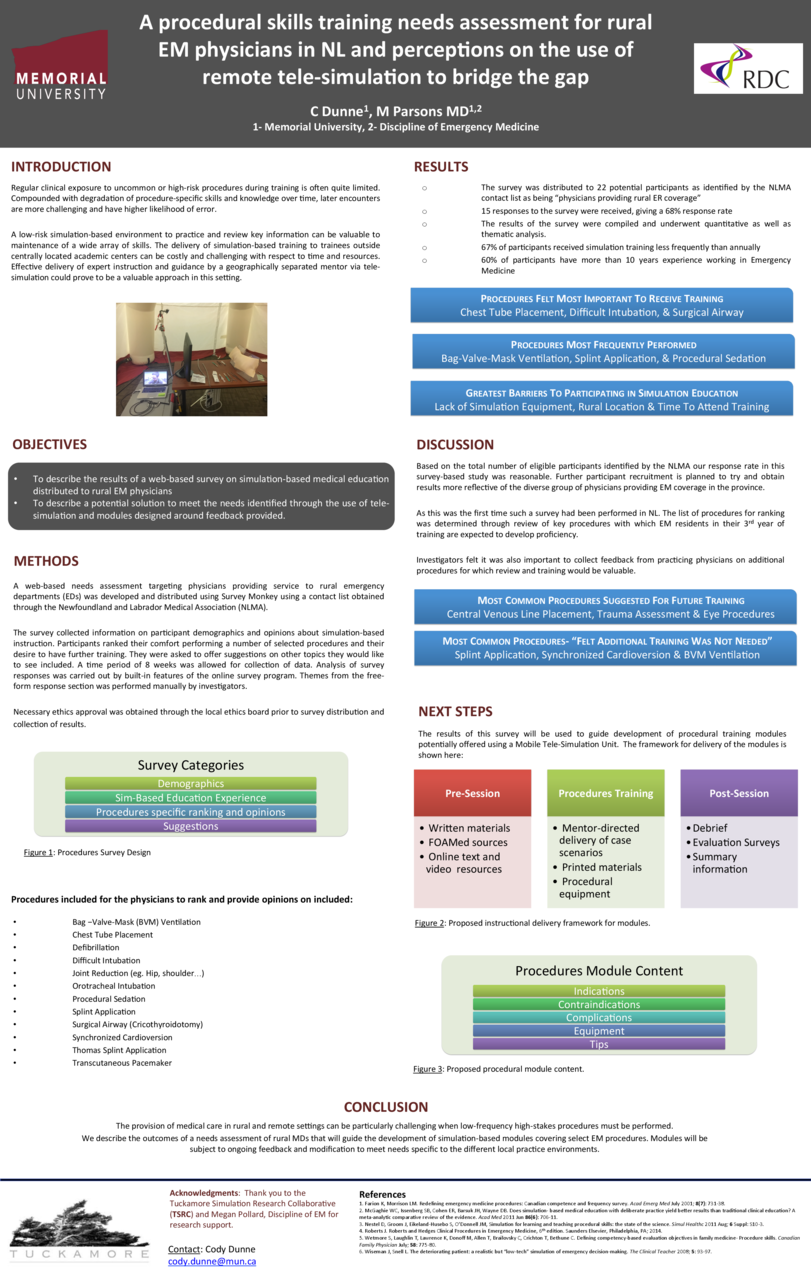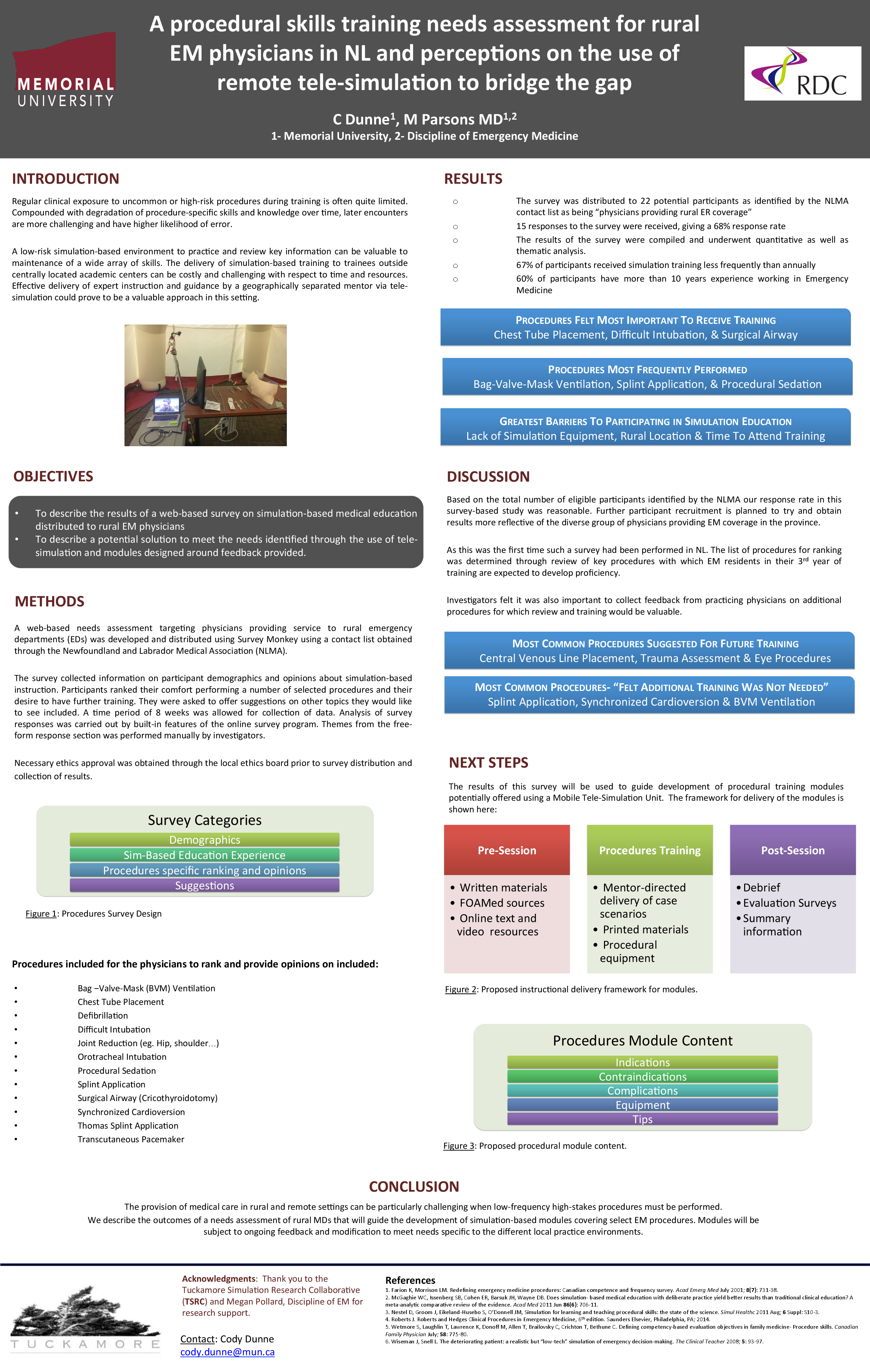Abstract
Presented at MESC 2017, St. John's, NL
Purpose: Regular clinical exposure to uncommon or high-risk procedures during training is often quite limited. Compounded with degradation of procedure specific skills and knowledge over time, later encounters are more challenging and have higher likelihood of error. A low-risk simulation-based environment to practice and review key information can be valuable to maintenance of a wide array of skills. The delivery of simulation-based training to trainees outside central academic centers can be costly and challenging with respect to time and resources. Effective delivery of expert instruction and guidance by a geographically separated mentor via tele-simulation could prove to be a valuable approach in this setting.
Methods: A web-based needs assessment targeting physicians in rural emergency departments (EDs) was developed. The survey was distributed via a contact list through the Newfoundland and Labrador Medical Association (NLMA). The survey collects information on demographics and opinions about simulation-based instruction. Participants are asked to rank their comfort performing a number of selected procedures, their desire to have further training and to make suggestions on refining the list of topics that modules should cover.
Results: The results of the survey will be compiled and undergo quantitative as well as thematic analysis. These results will be used to inform the development of a series of modules focused on core procedural skills relevant to the target audience. Modules designed to cover core information will include pre-session distribution of information such as relevant reading and audio-visual materials to cover key points. During mentor-guided instruction sessions, procedure-specific indications, contraindications, complications and equipment will be reviewed in the context of case-based scenarios. Challenges of delivering effective mentor guided tele-simulation will be addressed.
Conclusion: The provision of medical care in rural and remote settings can be particularly challenging when low-frequency high-stakes procedures must be performed. Delivery of simulation-based teaching facilitated by a geographically separated mentor using effective tele-simulation may help bridge gaps in knowledge and technical skills.





